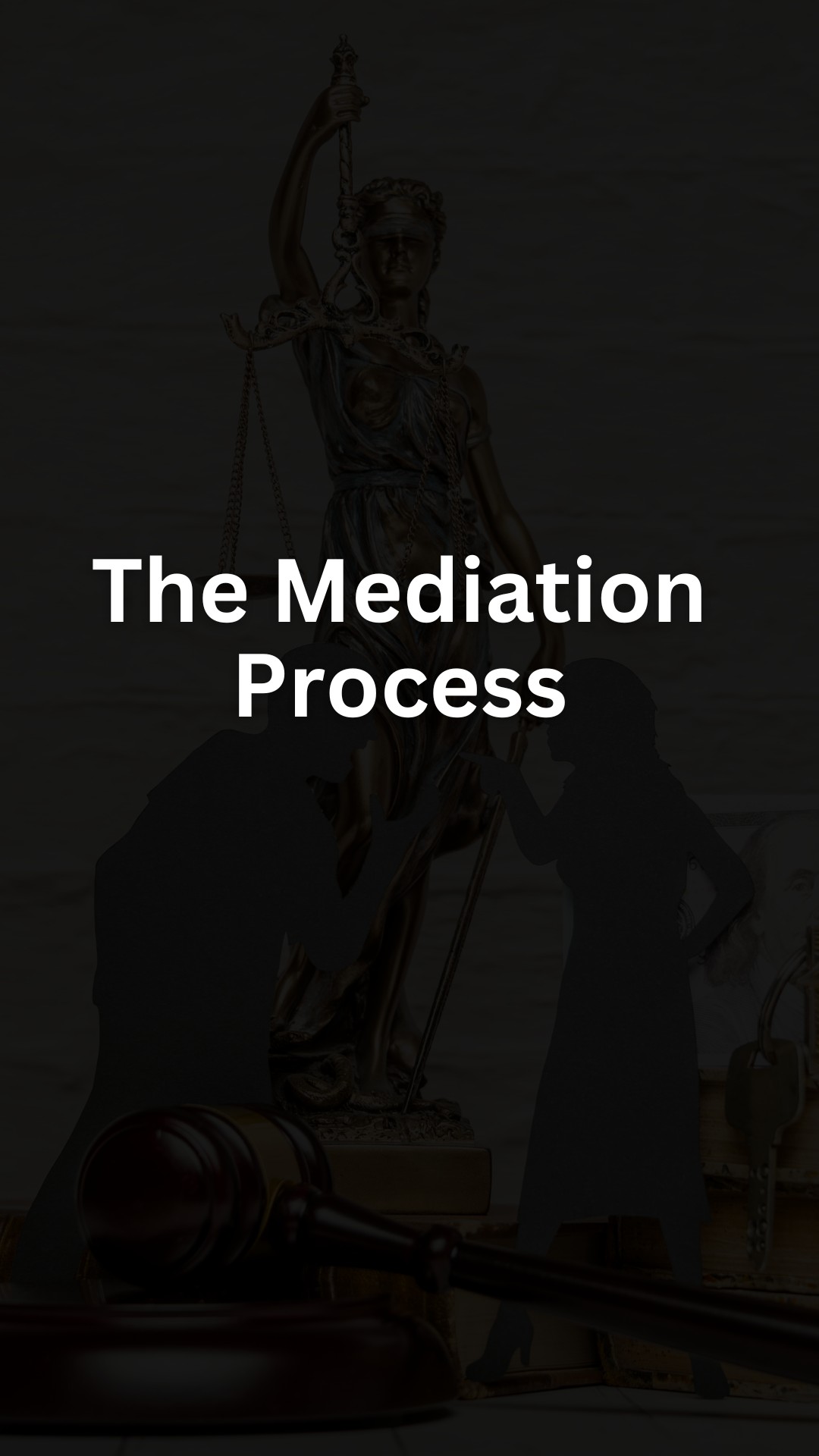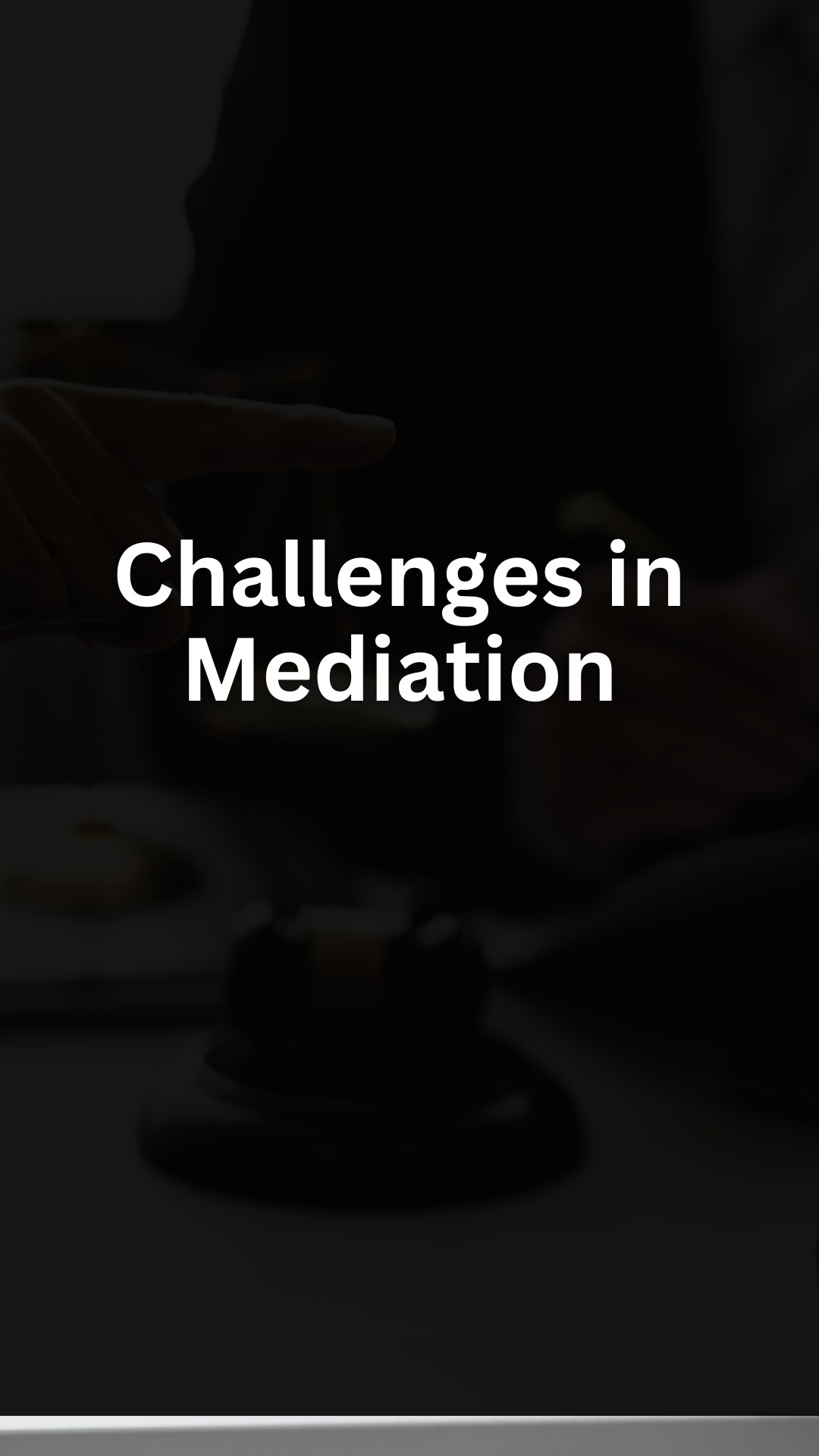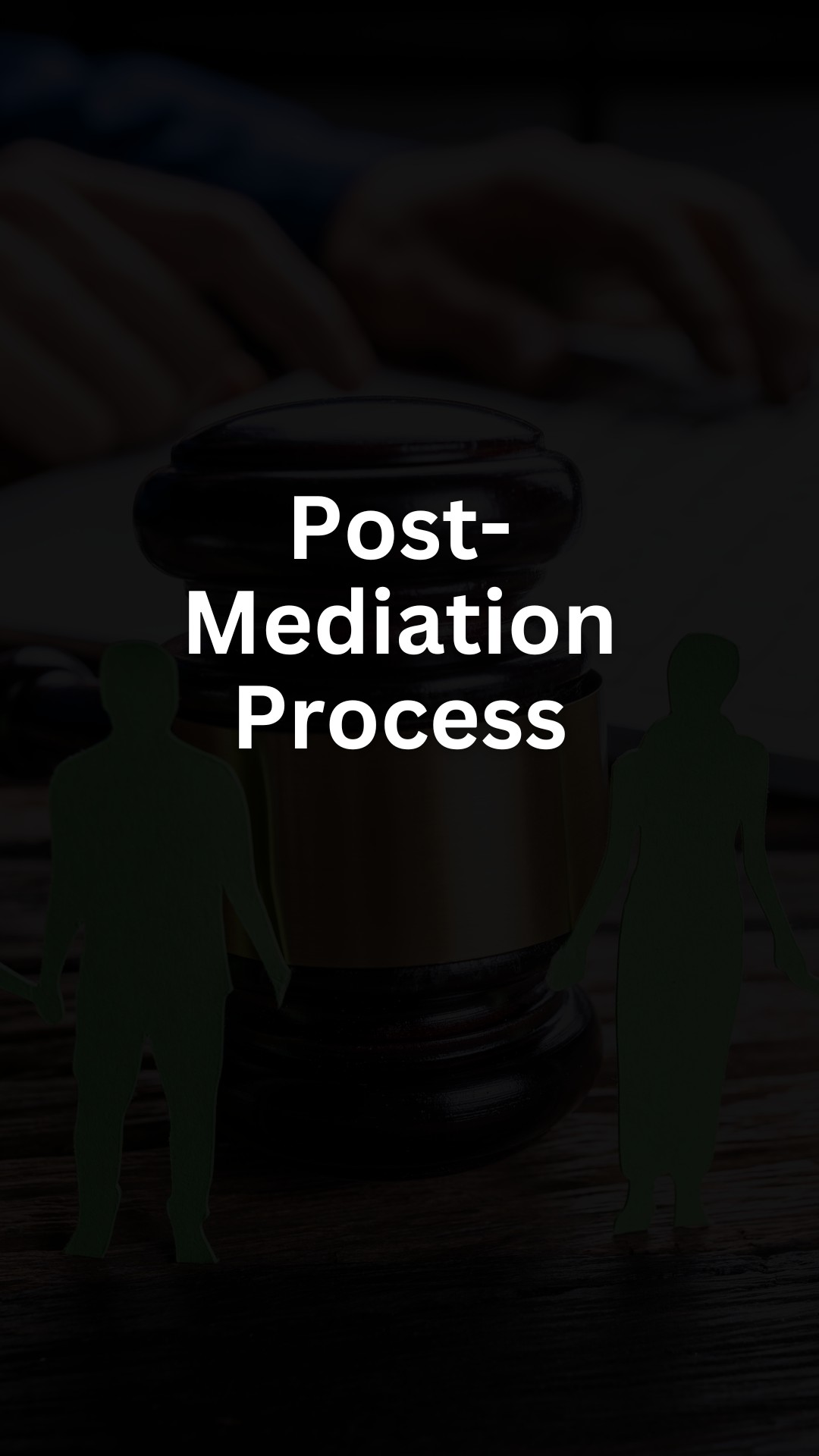Mediation can be a game-changer during a divorce. It helps both parties reach agreements without going through a long, expensive court battle.
This process involves a neutral third party who assists in finding common ground.
You might wonder why you should consider mediation.
Mediation focuses on collaboration and open communication, making it less stressful for everyone involved. Additionally, it allows you more control over the outcomes.
Another benefit of mediation is that it tends to be faster and cheaper than traditional divorce proceedings.
Besides saving money, you can also preserve a more positive relationship with your ex, which is especially important if you have children together.
The Mediation Process

Mediation in divorce helps couples communicate and agree on important issues. It involves key principles, specific steps, and choosing the right mediator.
Key Principles of Mediation
The main goal of mediation is to find a peaceful resolution.
You and your spouse talk through issues with a neutral mediator’s help. Mediators do not take sides or make decisions for you.
Confidentiality is essential. What you discuss in mediation stays private. This encourages open and honest communication.
Voluntariness means participation must be voluntary. Both parties have to agree to mediate and can leave the process at any time.
Steps Involved in Mediation
First, there’s an initial meeting.
During this, rules and the goals of mediation are explained. The mediator will also gather basic information from both parties.
Next comes issue identification.
The mediator helps list all areas needing agreement, like child custody, property division, and support payments.
Then, you begin negotiations.
This is where you discuss each issue with the mediator guiding you. The mediator may hold joint or separate sessions to help keep talks focused and productive.
Finally, if agreements are made, the mediator drafts a settlement agreement.
This document outlines all the agreed-upon terms and is reviewed by both parties before being made official.
Selecting a Mediator
Choosing the right mediator is crucial. Look for someone who is experienced in family law and has a good track record.
Check their qualifications. A mediator should have proper training and certification in mediation. They should also understand the legal aspects of divorce.
Consider their style and approach.
Some mediators are more facilitative, helping guide the discussion, while others are more evaluative, providing more input on the issues.
Lastly, trust your gut feeling.
You should feel comfortable and confident in your mediator, as honesty and trust are key components in the mediation process.
Benefits of Mediation in Divorce

Mediation offers many benefits in divorce proceedings. It keeps your matters private, saves money, reduces time, and gives you more control over the outcomes.
Confidentiality and Privacy
Mediation is confidential. Unlike court cases, which are public, mediation sessions are private.
This means that your personal matters stay between you, your spouse, and the mediator. This can help keep sensitive issues away from prying eyes and ears.
Agreements made in mediation are also private, only shared with the court if both parties agree.
Cost-Effectiveness
Mediation is often less expensive than going to court.
You save money on lawyers, court fees, and other expenses. Since mediation is quicker, you also avoid long, drawn-out legal battles that can drain your finances.
Saving money can be vital, especially when you are also dealing with the financial changes that come with divorce.
Time Efficiency
Time efficiency is another strong point of mediation.
Court schedules can cause delays, stretching the divorce process over months or even years.
Mediation, on the other hand, can be scheduled at your convenience. This allows for quicker resolutions.
By resolving issues faster, you can move on with your life sooner and reduce the emotional toll.
Control and Flexibility
In mediation, you have more control and flexibility.
You and your spouse work together to reach agreements, rather than having decisions imposed by a judge.
This means the solutions are often more tailored to your specific needs.
Flexible scheduling and the ability to explore creative solutions can lead to better outcomes for both parties.
Mediation vs. Litigation

Mediation and litigation are two ways to handle divorce. Each method has its own features, effects on relationships, and outcomes.
Differences in Approach
Mediation is a cooperative process. You and your spouse work with a neutral mediator to find agreements.
The mediator helps guide discussions but doesn’t make decisions for you. It’s more about collaboration and problem-solving. You stay in control of the final decisions.
Litigation, on the other hand, is adversarial.
Lawyers represent each side, and a judge makes the final decisions. It can be stressful and often involves court appearances. This approach tends to be more formal and rules-driven.
Impact on Relationships
Mediation tends to be less confrontational.
You communicate directly with your spouse, which can lead to better understanding and less conflict.
This can be especially important if children are involved, as it promotes cooperative parenting.
Litigation can strain relationships. The adversarial nature might increase hostility and resentment.
When lawyers speak for you, direct communication can break down. This might make future interactions with your ex-spouse more difficult.
Legal Outcomes
Mediation usually results in more personalized agreements.
Since you and your spouse create the terms, the outcomes can better fit your unique needs.
These agreements can often be more flexible and easier to adjust if circumstances change.
Litigation outcomes are more rigid. A judge makes decisions based on legal standards, which might not consider personal preferences as much.
Court rulings are binding and harder to change, meaning you have less control over the final outcome.
The Role of Lawyers in Mediation

Lawyers play an important part in divorce mediation. They offer guidance and ensure that both parties understand their rights and obligations, aiming for a fair settlement.
Advisory Role
Lawyers help you know your legal rights and what to expect during mediation.
They make sure you understand the law and the potential outcomes. This helps you feel more confident when making decisions.
They also help you prepare documents and evidence.
This may include financial records, property titles, and agreements. Having these ready can make the process smoother and quicker.
Moreover, lawyers can offer advice on negotiation strategies.
They can help you figure out which issues to prioritize and which compromises might be acceptable.
Legal Representation
Sometimes, lawyers attend mediation sessions with you. In other cases, they might only help behind the scenes. This depends on your preferences and the specifics of your case.
Their main role in legal representation is to protect your interests.
They make sure any agreements are fair and legally sound. They are there to catch any mistakes or unfair terms.
If an agreement is reached, your lawyer will review it.
They ensure all terms are clear and enforceable. This helps prevent future disputes.
Challenges in Mediation

Mediation can be tough due to power imbalances, complex financial issues, and dealing with high-conflict personalities.
Addressing Power Imbalances
In mediation, it’s important that both sides feel they are on equal footing.
One spouse might feel intimidated by the other, especially if there has been a history of abuse or manipulation.
To help, mediators must create a safe and fair space.
This might mean having private sessions with each party or allowing support persons to attend. It’s crucial that both parties have a voice and feel heard.
Another issue can be unequal knowledge about finances or legal matters.
Mediators often need to ensure that both parties have access to the same information and understand it properly.
This helps prevent one party from taking unfair advantage of the other.
Complex Financial Issues
Divorce often involves sorting out shared assets, debts, and financial responsibilities.
This can become very complicated, especially if there are business interests, multiple properties, or hidden assets involved.
Mediators need to have a solid grasp of financial principles or work closely with financial experts.
It’s necessary to ensure that all assets and liabilities are disclosed so the division can be fair.
If one party is hiding assets, it’s hard to reach a fair agreement.
Setting up fair child or spousal support can also be tricky.
It’s important to consider both parties’ future financial needs and earning potentials.
The mediator must help navigate these discussions delicately and ensure that any agreement is based on solid financial ground.
High-Conflict Personalities
When emotions run high and tempers flare, mediation can become very challenging.
Some people may not be willing to compromise or speak calmly. This is often seen in cases where one or both parties have high-conflict personalities.
A skilled mediator must manage these dynamics carefully.
They often set ground rules, such as taking breaks or limiting the length of sessions.
Techniques like active listening and rephrasing statements can help keep discussions constructive.
If conflicts go unchecked, mediation may become impossible.
In these cases, the mediator needs to recognize when it’s time to stop the process and suggest alternative methods for resolution.
Ensuring a respectful and calm environment is key to making progress.
Custody and Parenting Plans

When parents divorce, deciding on custody and creating a parenting plan are crucial. It’s important to develop a strategy that benefits both parents and supports children’s needs.
Creating a Co-Parenting Strategy
A co-parenting strategy helps ensure that both parents share in raising their children.
It’s vital to decide where the children will live and how time will be split.
Add schedules for weekends, holidays, and vacations.
Good communication between parents is key. Regular check-ins can help adjust plans as needed.
Some parents use tools and apps to manage schedules and share important information. Keeping a consistent routine helps children feel secure.
Children’s Best Interests
Decisions about custody should focus on what is best for the children.
Consider their age, needs, and any special circumstances.
Stability and staying in familiar environments can be crucial for their well-being.
Listen to children’s preferences if they are old enough to have a say. Their comfort and happiness are the top priorities.
Mental health professionals or mediators can offer valuable insights if needed.
Financial Settlements in Mediation

Mediation helps ex-spouses decide how to divide their assets and agree on alimony and child support. This process ensures fair and equitable financial arrangements.
Dividing Property
During mediation, you and your ex-spouse will list all your assets and debts.
This includes your home, cars, bank accounts, and any other possessions.
Then, you both decide how to divide these items fairly.
Mediators help guide you through this to ensure all property is split fairly. They may use legal frameworks and fairness principles to guide decisions.
Both parties must agree on the division of each item.
This process is flexible, allowing you to customize solutions based on your specific needs and situations. Open communication and willingness to compromise are key to a successful outcome.
Alimony and Child Support
Alimony and child support are important aspects of financial settlements in mediation.
Alimony is money one spouse pays to support the other after a divorce. Child support ensures that children’s needs are met financially.
To determine alimony, factors like the length of the marriage, each spouse’s income, and living conditions are considered.
For child support, both parents must agree on an amount that covers the child’s day-to-day expenses.
Mediators help you understand these responsibilities and work towards a fair agreement.
The goal is to ensure that both parties meet their financial obligations without causing undue hardship.
Post-Mediation Process

After mediation, there are key steps that must be taken to finalize the divorce and make sure both parties follow the agreement.
Finalizing the Divorce
Once mediation concludes, you will need to formalize the agreement.
Both parties must review and sign the document. Sometimes, a judge may need to approve the agreement to make it legally binding.
Next, you will file the documents with the court.
This may include your settlement agreement, parenting plan, and any other necessary forms. Some courts require a hearing, while others do not. Check your local court’s requirements.
Keep in mind that the timeline for finalization can vary. Legal advice may be helpful to ensure you complete everything correctly and quickly.
Enforcing the Agreement
After the agreement is finalized, both parties must adhere to its terms. If one party doesn’t follow the agreement, the other party can seek enforcement through the court.
Be aware that enforcement might involve several steps.
You may start by discussing the issue directly with the other party. If that’s unsuccessful, filing a motion in court can help.
Courts can enforce agreements by issuing orders, which might include compensation, modification of terms, or other actions to ensure compliance with the original agreement.
Regular communication and willingness to resolve conflicts can help avoid legal enforcement steps.
International Divorce Mediation

International divorce mediation involves unique issues due to cultural differences and jurisdictional challenges. These factors can complicate the mediation process significantly.
Cultural Considerations
When dealing with international divorce, you must account for different cultural norms and expectations.
Cultures may have varying views on family roles, custody, and even the divorce process itself. In some cultures, direct communication about issues is preferred, while in others, indirect methods are more respectful.
Different religions and traditions can also play a major role.
For instance, some cultures might require mediation to adhere to religious laws.
It’s important to find a mediator who is aware of these cultural nuances, so they can navigate sensitive topics effectively without offending either party.
Language barriers can also pose a challenge.
The mediator might need interpreters to ensure that both parties understand each other clearly. This helps to avoid misunderstandings and promotes fair negotiations.
Jurisdictional Challenges
With international divorces, you deal with different legal systems.
Each country has its own laws regarding marriage, divorce, and custody.
You need to determine which country’s laws will govern the divorce proceedings. This is crucial because legal standards and outcomes can vary widely.
Residency requirements may complicate matters.
Some countries require a spouse to live there for a certain period before filing for divorce. This can cause delays if the requirements are not met.
Enforcement of agreements is another concern.
An agreement reached in one country might not be enforceable in another. This is especially important in cases involving child custody and support.
It’s important to work with legal experts who understand international law to ensure that any agreement made will hold up in both countries.
Frequently Asked Questions

In divorce mediation, you focus on finding solutions together. This section answers common questions about when to avoid mediation, what to include in your checklist, and how much time and money you might spend.
When is it advised to avoid divorce mediation?
You should avoid divorce mediation if there is a history of domestic abuse. It’s also not suitable if one party is hiding assets or being dishonest. Mediation requires trust and an even playing field.
What should be included in a divorce mediation checklist?
Include financial documents like tax returns, pay stubs, and bank statements.
List all assets and debts, including properties and loans. Discuss child custody plans and alimony.
Being prepared can make the process smoother and faster.
What are some effective strategies for divorce mediation?
Stay calm and open-minded. You should listen carefully to the other party. Consider each option before making decisions.
Remember, the goal is to reach an agreement that both parties can live with.
What is the typical cost range for divorce mediation services?
The cost can vary widely. On average, it ranges from $100 to $300 per hour.
Some mediators require a retainer fee. It’s generally less expensive than going to court, saving you both money and stress.
How much time does the divorce mediation process usually require?
The process can take a few weeks to a few months.
It depends on the complexity of the issues and the willingness of both parties to cooperate. Each session typically lasts one to two hours.
What are some common benefits and drawbacks of opting for divorce mediation?
Benefits include lower costs, faster resolution, and more control over the outcome.
You can also maintain a better relationship with your spouse.
Drawbacks might include the need for compromise and the possibility that mediation could fail, leading to court anyway.